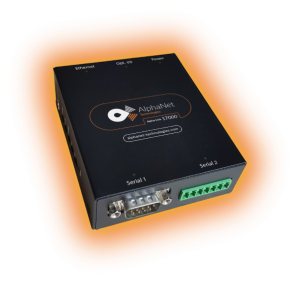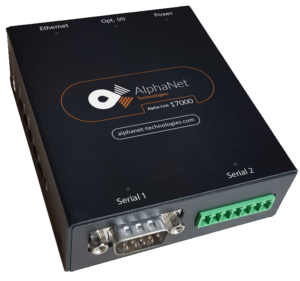In today’s rapidly evolving industrial landscape, the ability to adapt and extend communication protocols plays a pivotal role in boosting productivity and efficiency. Whether you’re managing a manufacturing facility, an energy grid, or an intricate network of devices, reliable protocol extensibility is the key to ensuring seamless data exchange, real-time monitoring, and streamlined operations. This article explores the importance of protocol extensibility and how it contributes to enhancing productivity in various industrial sectors.
Understanding Protocol Extensibility
The Dynamic Nature of Industrial Networks
Protocol extensibility refers to the capability of a communication protocol or network to be expanded, customized, or adapted to accommodate new devices, technologies, or functionalities. It acknowledges the dynamic nature of industrial networks, where the integration of diverse devices and systems is commonplace. Extensible protocols can evolve alongside technological advancements, ensuring that industrial operations remain efficient and adaptable.
The Role of Protocol Extensibility in Industrial Productivity
The Pillar of Efficient Data Exchange
Protocol extensibility is the pillar upon which efficient data exchange in industrial settings is built. Here’s how it contributes to productivity:
- Seamless Integration: Extensible protocols facilitate the seamless integration of new devices and technologies into existing networks. This means that as your industrial setup evolves, you can add or upgrade devices without disrupting operations.
- Customization: Extensible protocols allow for customization to suit specific industry needs. Whether it’s adjusting communication parameters or adding custom data fields, these protocols can be tailored to fit the unique requirements of your operation.
- Scalability: As industries grow and expand, protocol extensibility ensures that networks can scale effortlessly. You can add more devices or expand your network without experiencing bottlenecks or compatibility issues.
- Compatibility: Extensible protocols can accommodate a wide range of communication interfaces, ensuring compatibility between legacy systems and modern devices. This is crucial for industries with existing infrastructure that they want to retain while integrating new technology.
Real-Life Applications of Protocol Extensibility
Boosting Productivity Across Industries
Let’s explore how protocol extensibility drives productivity across various industrial sectors:
Manufacturing
In manufacturing, production lines are becoming increasingly automated and interconnected. Protocol extensibility allows manufacturers to add new machines, sensors, and control systems to their production lines without the need for extensive reconfiguration. This flexibility ensures that manufacturing processes remain efficient, adaptable, and capable of meeting changing market demands.
Energy and Utilities
Energy grids and utility networks are becoming smarter and more interconnected. Protocol extensibility in these sectors enables the integration of renewable energy sources, smart meters, and advanced monitoring systems. By extending communication protocols to accommodate these technologies, energy and utility companies can optimize resource allocation, reduce downtime, and improve service reliability.
Transportation and Logistics
In transportation and logistics, protocol extensibility supports the integration of IoT devices for real-time tracking, monitoring, and route optimization. By extending protocols to include these devices, logistics companies can streamline operations, reduce fuel consumption, and enhance delivery accuracy.
Healthcare
In healthcare, protocol extensibility is crucial for the integration of medical devices, electronic health records, and telemedicine solutions. This extensibility ensures that healthcare providers can access patient data securely, make informed decisions, and provide timely care.
Agriculture
In agriculture, the integration of precision farming technologies relies on protocol extensibility. Farmers can incorporate sensors, drones, and automated machinery into their operations, optimizing crop yield and resource utilization.
Choosing the Right Extensible Protocol
A Strategic Decision
Selecting the right extensible protocol is a strategic decision for any industry. Here are some considerations:
- Scalability: Ensure that the protocol can scale with your organization’s growth and accommodate future technology enhancements.
- Interoperability: Look for protocols that support interoperability between different devices and systems, reducing compatibility challenges.
- Security: Prioritize protocols with robust security features to protect sensitive data and maintain compliance with industry regulations.
- Customization: Consider whether the protocol allows for customization to fit the specific needs of your industry.
- Technical Support: Evaluate the availability of technical support and resources for the chosen protocol to ensure a smooth implementation process.
Conclusion: The Path to Enhanced Productivity
Protocol Extensibility as a Competitive Advantage
Protocol extensibility is not just a technological feature; it’s a competitive advantage in today’s industrial landscape. It empowers industries to stay agile, adaptable, and efficient in the face of ever-evolving technology. By choosing extensible protocols, organizations can leverage the benefits of seamless integration, customization, scalability, compatibility, and security to enhance their productivity and maintain their competitive edge.
As industries continue to embrace digital transformation and the Internet of Things (IoT), protocol extensibility will remain at the forefront of innovative and efficient industrial operations. It’s the bridge that connects legacy systems with modern technologies, ensuring that industries can harness the full potential of their interconnected networks.



